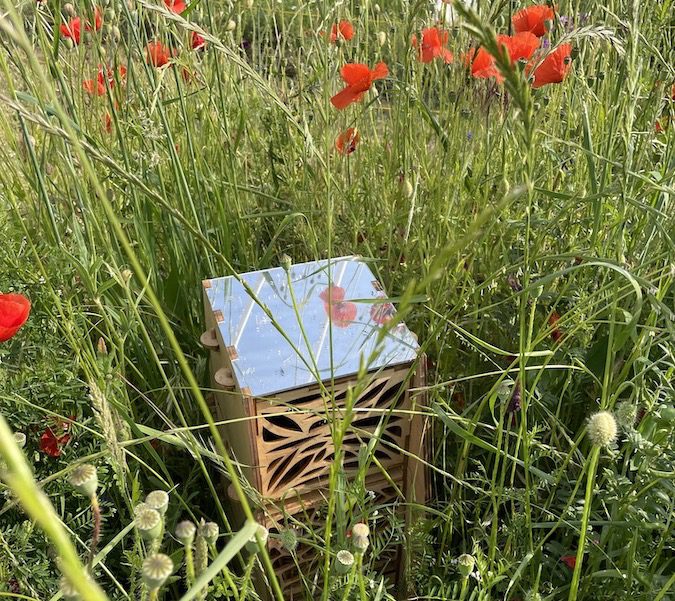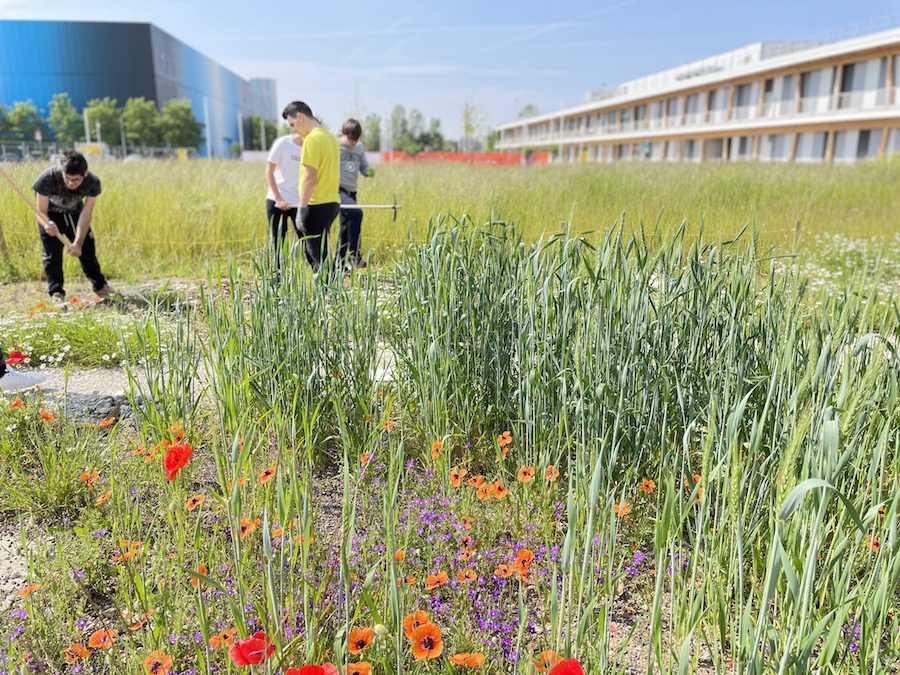Nowadays human activity has a big impact on the ecosystem of the flora and the fauna and it is an urban planners’ duty to learn how to design for animals too. At our first episode of In the meantime, the T-Factor podcast, the landscape architect from LAND Nicoletta Piersantelli talks with the ecologist Una Fitz Patrick, who is leading the national irish program All Ireland Pollinators, and Quentin Aubry and Zeger Dalenberg, architects and engineers from Studio Audal. The podcast is aimed at exploring urban design through the needs of animals that live in urban areas and sharing practical tools to apply this vision to landscape projects.
As Nicoletta Piersantelli explains, the work of landscape architects consists of designing greenspaces, including public spaces located in cities, so they deal with the challenge of reconnecting citizens with urban nature. At their studio placed in Rotterdam, Quentin Aubry and Zeger Dalenberg experiment nature inclusive design in small scale landscape projects, and in their conversation with Nicoletta they share inspiring projects such as the Empathy park in Seoul, where they studied all the stakeholders of the site, not only humans but all the kind of species that use it, in order to respond to their needs. “We analysed how they move through spaces, how they feed themselves, how they interact with each other,… and we translated it into physical paths”, explains Zeger Dalenberg.

The conversation also includes the expertise of Una Fitz Patrick, ecologist that leads All Ireland Pollinators Plan. As she explains, nowadays one third of irish pollinators are in danger, so one of the main concerns of the irish National Biodiversity Data Centre is to take action to reverse this situation. “We found out that people want to help, but to do so they need to know what pollinators need to survive”, explains in the podcast Una Fitz Patrick. Through this plan, they decided to spread simple actions that people can take to help, aimed at local authorities, communities, farmers and other stakeholders. As the ecologist highlights, “a lot of small actions put together can help to solve a big problem”.
Listen to the episode Animal oriented design 1/How to design for animals? to learn more about this inspiring projects.
Animal-oriented Design Workshop
Explore the potential of including non-human perspectives into placemaking processes in urban open spaces through meanwhile uses focused on local biodiversity
